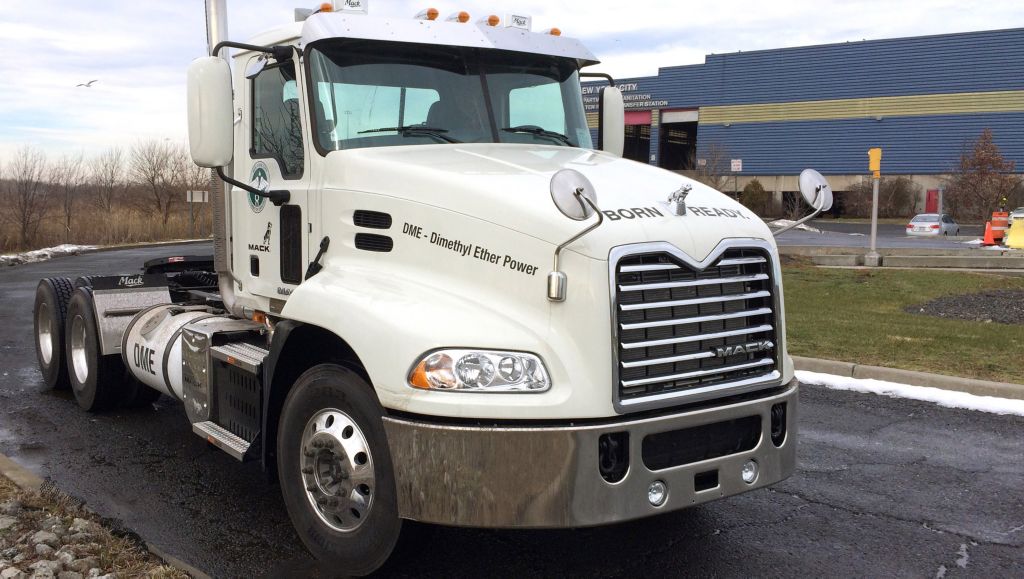Mack Trucks tests alternative fuel DME


“We look forward to gathering data with DSNY and Oberon to better determine the performance and drivability of the DME-powered Mack Pinnacle model,” said Dennis Slagle, president of Mack Trucks. “We believe DME shows great promise, and we are pleased to be working with our longtime customer DSNY to evaluate the fuel as a viable alternative to diesel.”
DME delivers the same exceptional performance as diesel fuel and generates no soot. The fuel offers many benefits, including that it can be made from multiple sustainable feedstocks, such as food waste, animal waste, grass clippings and natural gas. It offers the same performance and energy efficiency as diesel. DME does not require cryogenic temperatures or high tank pressures.
The DSNY evaluation will take place at the Freshkills Landfill, located on Staten Island, New York, and will last several weeks. Results are expected to be available mid-2017.
New York City recently announced a vision to reduce greenhouse gas (GHG) emissions by 80 percent in 2050 compared with 2005. In order to achieve this goal, the city must reduce 43 million metric tons of GHG emissions. When produced from organic waste, DME can reduce GHG emissions.
“The New York City Department of Sanitation is committed to seeking opportunities to reduce our environmental footprint,” said Deputy Commissioner Rocco DiRico, DSNY. “DME could be one solution to help us achieve this goal, and we are pleased to be partnering with Mack Trucks on this endeavor.”
“This first-ever customer demonstration of a DME Mack truck is an excellent opportunity to showcase the potential of DME in real-world use cases,” said Rebecca Boudreaux, Ph.D., president of Oberon Fuels. “We commend the New York City Department of Sanitation and Mack Trucks for their leadership in this program, which we believe will advance the testing and adoption of the zero-soot, low carbon, emissions-reducing DME fuel to help cities around the world become more sustainable.”